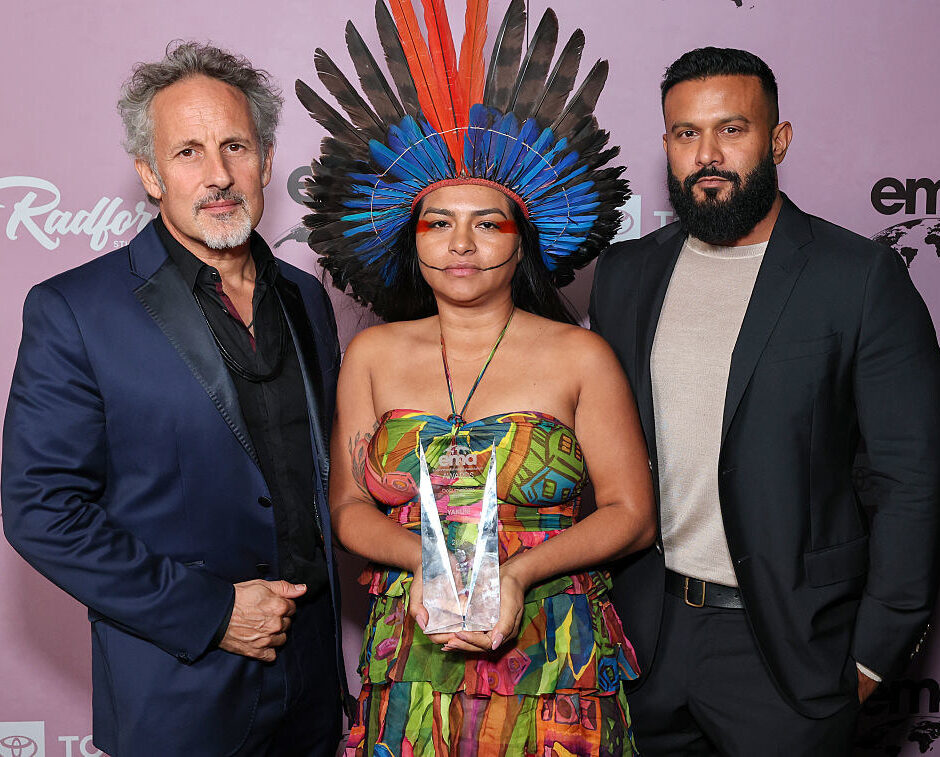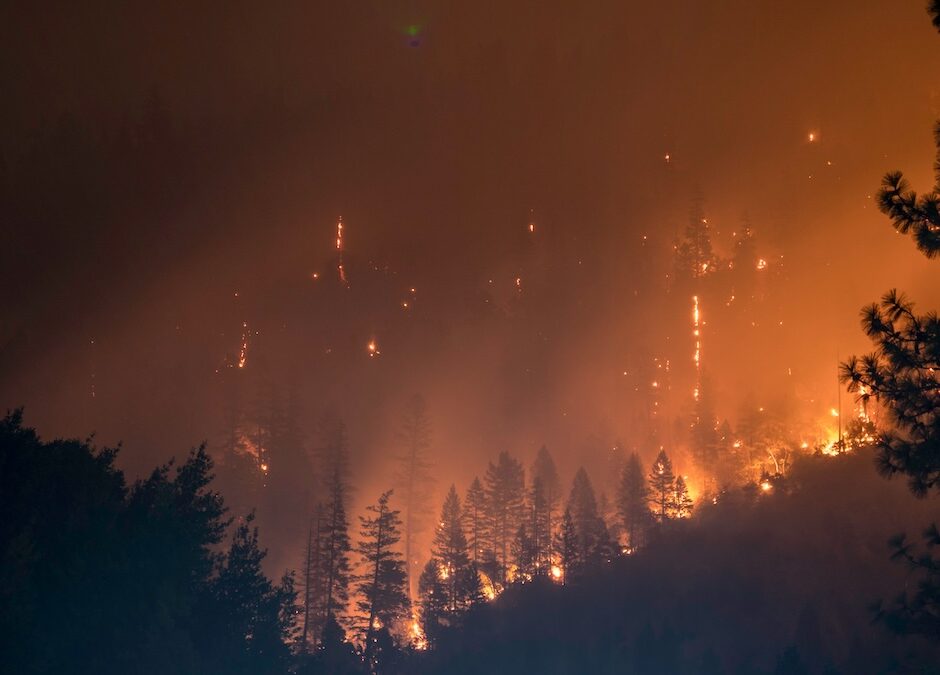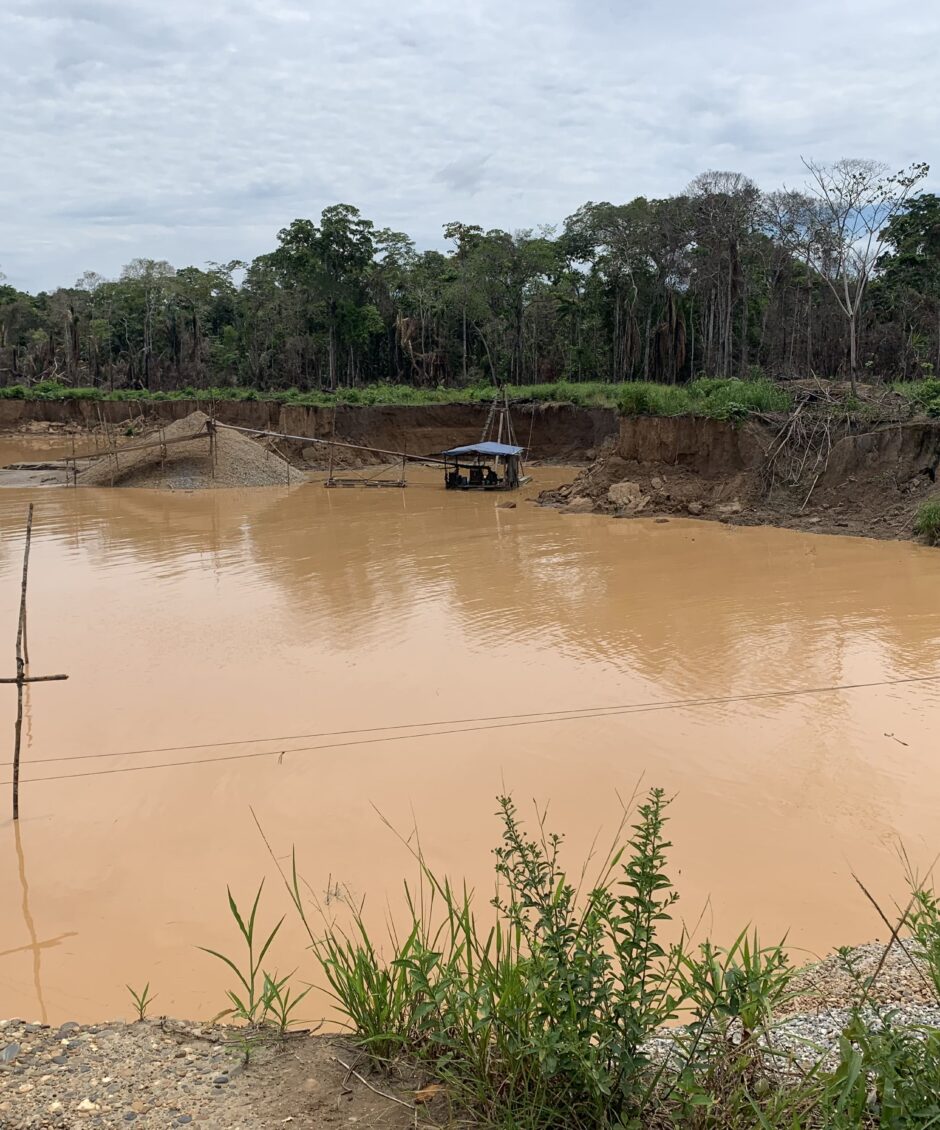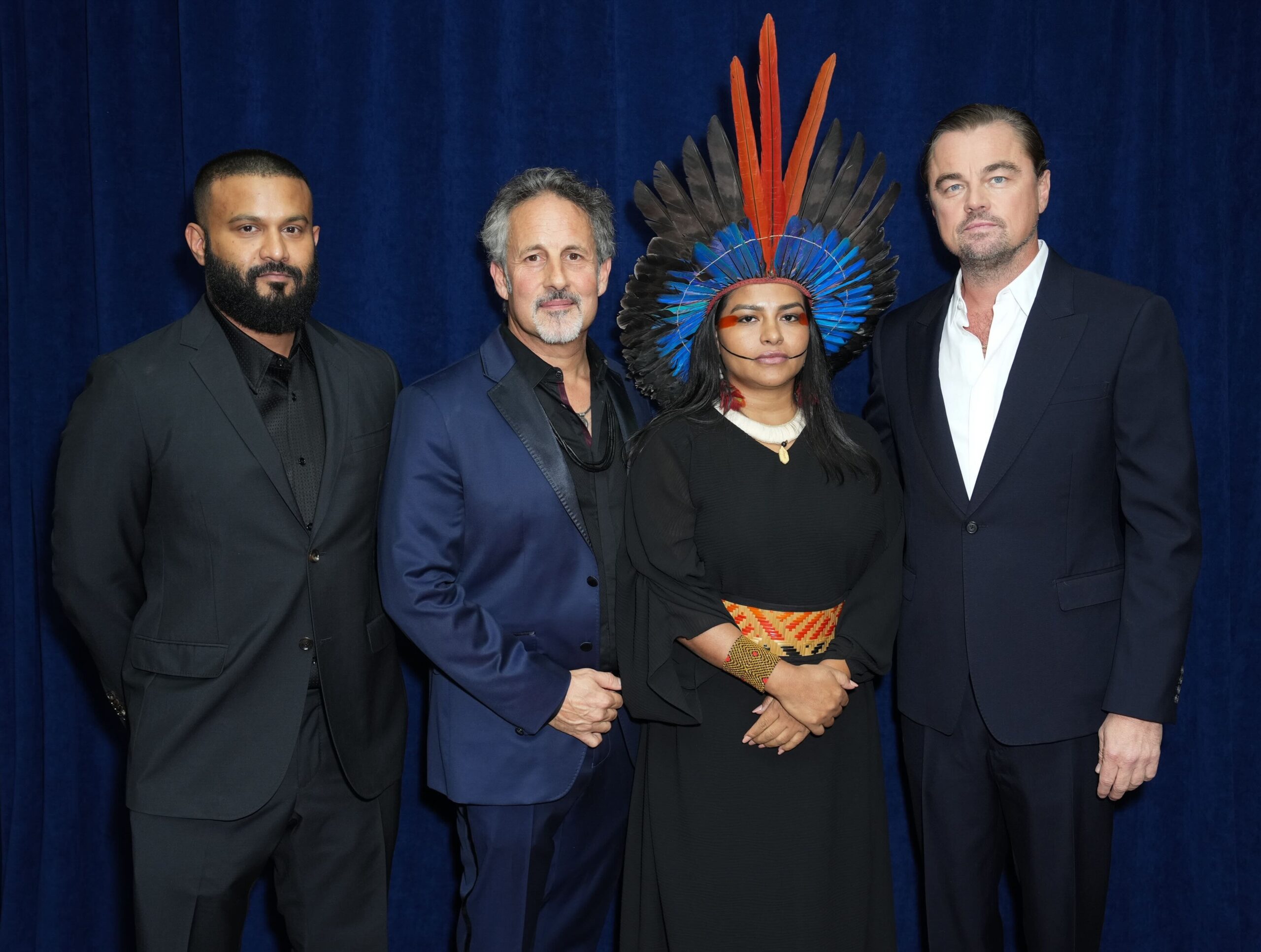Age of Union Centre Fall-Winter Season Opening Showcases Transformative Power of Art With New Installations
Article
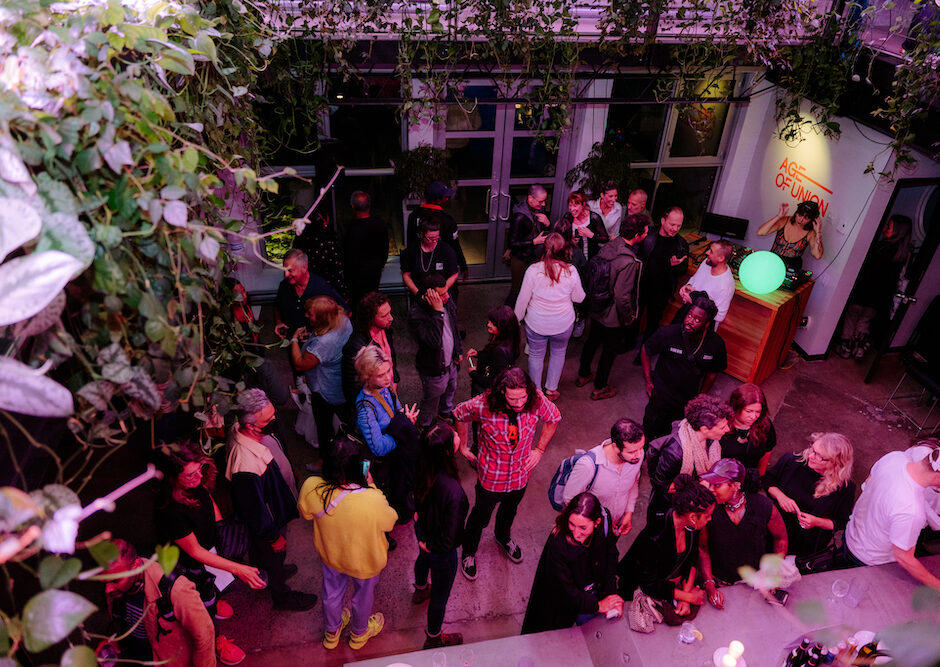
Age of Union’s Earth Centre launched its new Fall-Winter exhibits where awareness and immediate action are building upon the power of art.
Author
Jean-Philip Rousseau
Topics
Meet Katherine Takpannie, and you’ll find that her smile says it all. It’s as infectious and radiant as the emotions her photographs evoke when displayed at the Age of Union’s Earth Centre in Montréal, Canada. In the heart of the Inuktuk language, the phrase “Quviasuppunga” holds a special place. It’s not just a word; it’s a piece of her past, present, and future.
“Quviasuppunga” is as much hers as it was her mother’s, grandfather’s, and those who came before them. It’s a part of her identity, much like the land she grew up on — just like her mother, her grandfather, and countless generations before. This phrase signifies more than happiness; it encapsulates her essence.
Through her lens, Takpannie captures the essence of the land that her ancestors called home, surrounded by Arctic waters and standing as a frontline witness to the challenges of climate change. “I am incredibly humbled and thrilled that my art and voice have found a platform to be shared. I couldn’t be happier,” she shares.
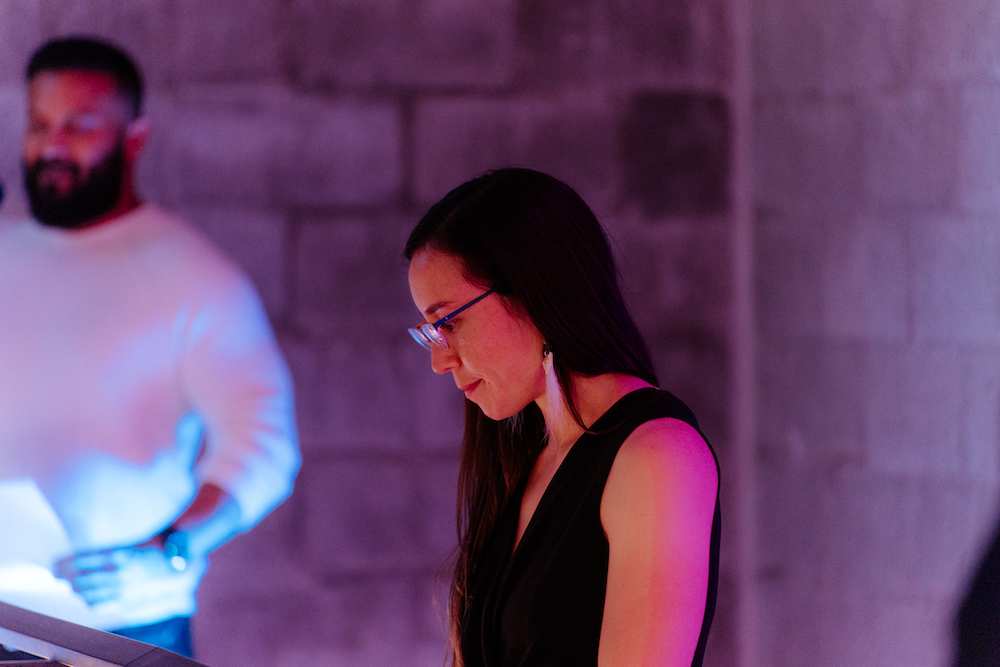
The artist, immersed in a whirlwind of emotions, reflects on what it means for an Inuk artist like herself to be featured and shine in the spotlight of Québec’s bustling metropolis, Canada’s second-largest city.
“I hope my art can help bring greater awareness to the Inuit community, our deep connection to the land, and its paramount importance for our survival,” she shares. “I aim to foster discussions about land stewardship, environmental care, and who holds the final say in resource development.”
For Takpannie and her community, the stakes are undeniably high. The culture, heritage, and way of life hang in the balance, making the exhibition’s title, “Looking to the Future,” especially relevant.
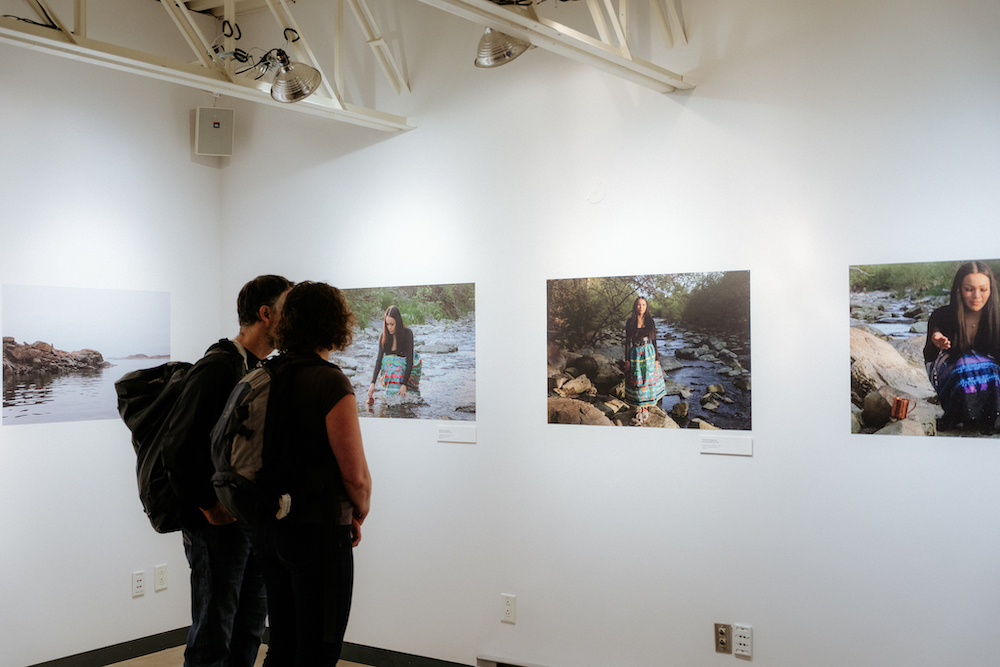
Harnessing the Influence of Art
Katherine Takpannie’s creations have become integral to the Age of Union Centre’s new Fall and Winter season, unveiled on September 29 during a season-opening event that drew hundreds of attendees to the venue.
Her artwork shares the stage with pieces by other artists, including Prince Hussain Aga Khan’s “Focused on Nature,” Mélanie O’Bomsawin’s “Là où se pose la lumière” (Where Light Shines), and Simone Piccoli’s film “Child of the Ocean.”
Age of Union Founder Dax Dasilva sees the project as a means to engage urban audiences by transporting them to places that not everyone can easily access. The aim is to immerse people in the natural environments that warrant our awareness and concern as they confront various challenges. In essence, it’s about utilizing the power of art to bring nature to people when the opposite isn’t feasible.
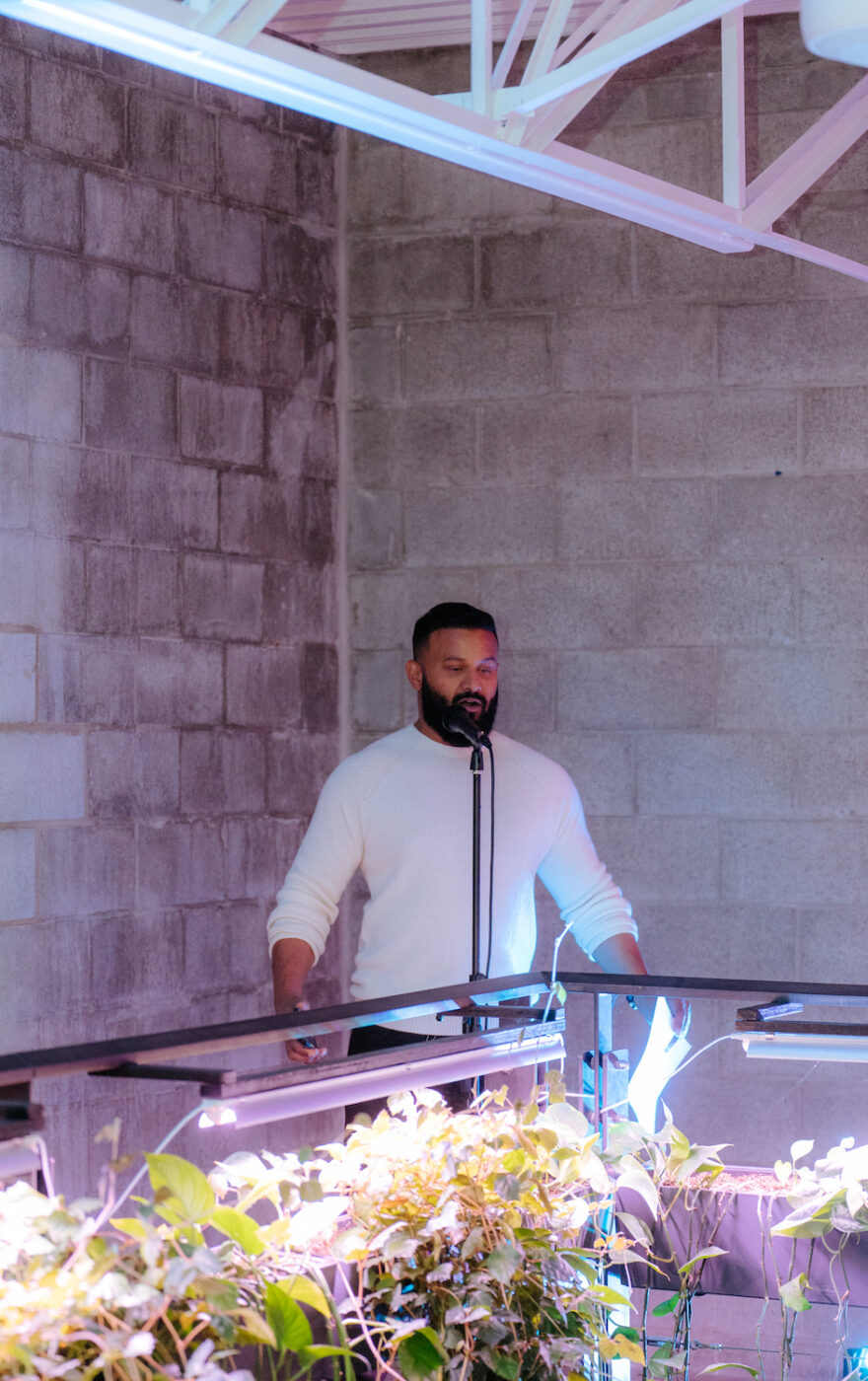
Adrian A. Stimson, Age of Union’s Curator of Indigenous Art, emphasizes the profound capabilities of art. For him, the medium is an integral part of our essence, being, souls, and hearts. Standing next to him, one can sense the depth of his affection for art, which radiates from his eyes and spirit.
“Art can resonate with people’s core and the possibilities of life,” says Stimson.
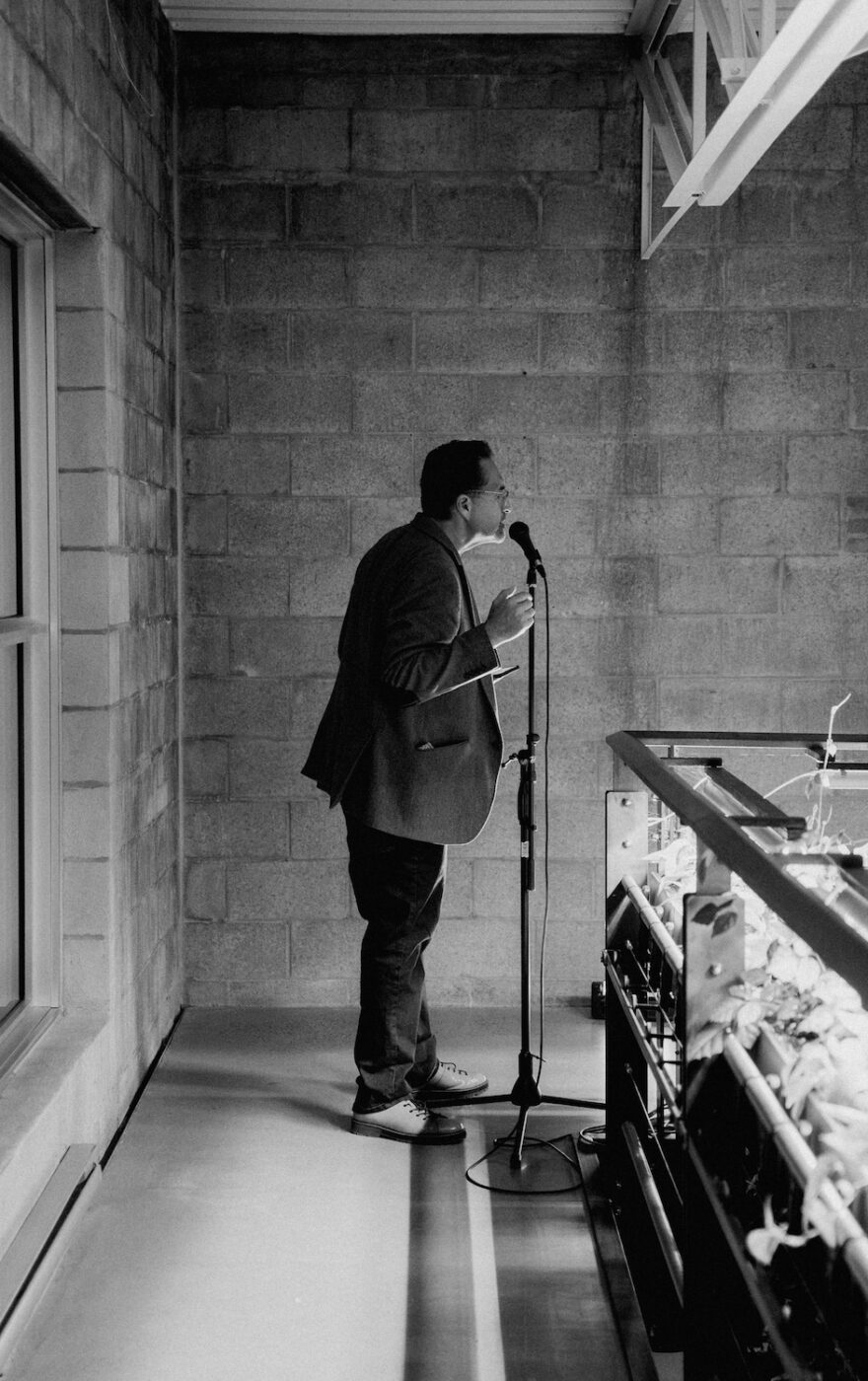
Dasilva shares the idea, adding that art can attract new audiences — not just those who are already committed environmentalists. Events such as the season-opening draw individuals who may not yet be convinced that meaningful changes can be made to the planet. Here, exhibitions like Age of Union shine brightest — using art as a catalyst for broader engagement and impact.
“I think our main goal is to change perceptions that through our work and other people’s work, we have proof that things can be done, and things must be done, especially in this decade of action.”
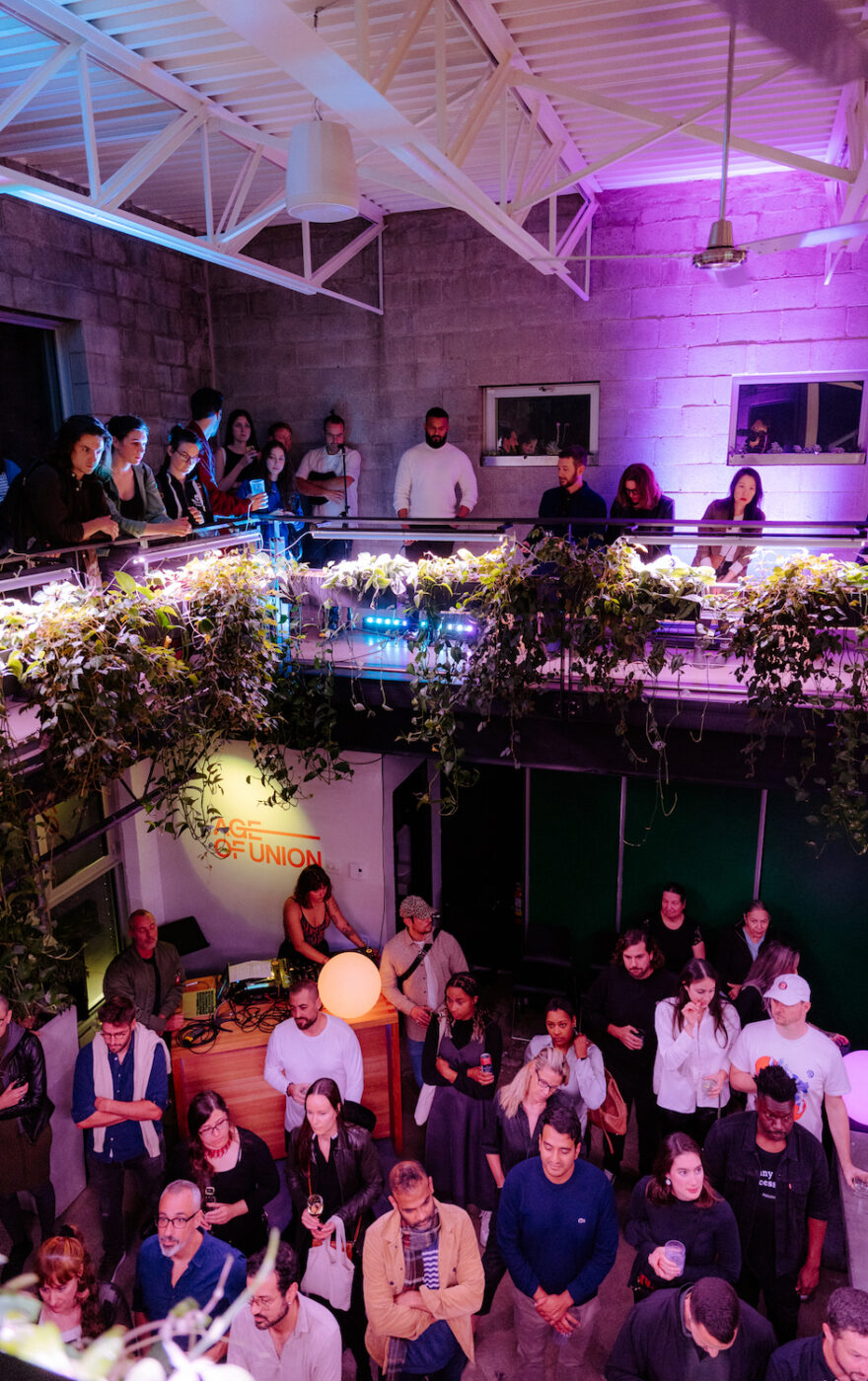
Becoming One with Hope
Aude Guivarc’h shares Dasilva’s perspective, stating that art plays a key role in stimulating people and creating doubt about oneself.
“Enabling emotions is the important part. I think it’s one of the more durable ways to have a message get through.”
The new media artist behind “Lava Cave,” part of the Centre’s permanent collection, combines new technologies to create immersive experiences.
“Keep pressing and pay attention to what’s happening,” she tells a teenager standing on the other side of the cave while pressing a wall. Suddenly, the light changes and the ceiling turns to fire. The magmatic lounge transforms into an unfriendly environment, mirroring mankind’s destruction upon Planet Earth.
But the destruction can be reversed. As a third person happens to walk in, they press a third sensor, paving the way for hope. Walls and ceiling turn to white — the purest form of light.
“Like carbon transformed into a diamond,” says Guivarc’h. The actions of many have appeased the cave’s wrath. “It alludes to the collective beauty we can create by working together.”
Credits
Ludovic Rolland-Marcotte
Topics
Article written by
Jean-Philip Rousseau
Related
articles
News
Age of Union Marks 4 Years of Global Conservation Wins As COP30 Commences in Brazil
News, Other
‘Echoes from Eden’ Book Tour Connects Readers to Urgent Stories of Conservation
America, Asia, News
What More Intense Wildfire Seasons Mean For People and the Planet
Project
More articles
News
Age of Union Marks 4 Years of Global Conservation Wins As COP30 Commences in Brazil
News, Other
‘Echoes from Eden’ Book Tour Connects Readers to Urgent Stories of Conservation
Explainer, South America
In the Amazon, Gold Mining Leaves a Toxic Trail
America, Asia, News
What More Intense Wildfire Seasons Mean For People and the Planet
Film
